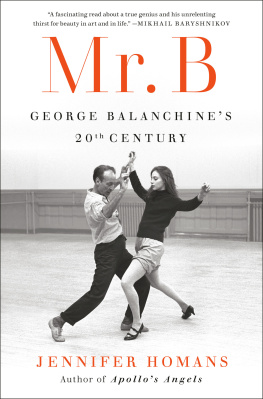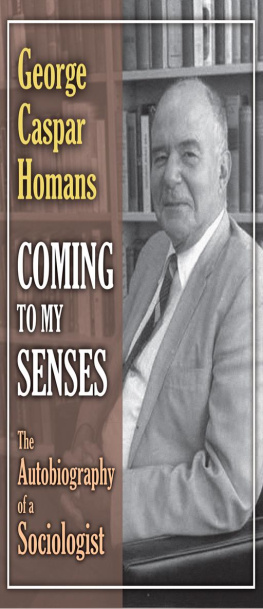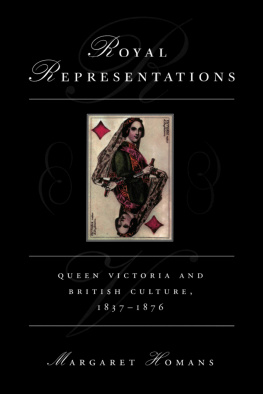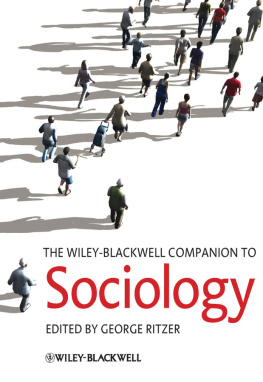Behavioral Theory in Sociology
Behavioral Theory in Sociology
Essays in Honor of George C. Homans
Edited by
Robert L. Hamblin
and
John H. Kunkel
First published 1977 year by Transcation, Inc.
Published 2021 by Routledge
2 Park Square, Milton Park, Abingdon, Oxon OX14 4RN
605 Third Avenue, New York, NY 10017
Routledge is an imprint of the Taylor & Francis Group, an informa business
Quoted material from The Nature of Social Science, copyright 1967 by George C. Homans. Reprinted by permission of Harcourt Brace Jovanovich, Inc.
All rights reserved. No part of this book may be reprinted or reproduced or utilised in any form or by any electronic, mechanical, or other means, now known or hereafter invented, including photocopying and recording, or in any information storage or retrieval system, without permission in writing from the publishers.
Notice:
Product or corporate names may be trademarks or registered trademarks, and are used only for identification and explanation without intent to infringe.
Library of Congress Catalog Number: 76-1776.
Library of Congress Cataloguing in Publication Data
Main entry under title:
Behavioral theory in sociology.
Includes bibliographies and index.
CONTENTS: Skinner, B. F. George Homans at Harvard.Gibbs, J. P. Homans and the methodology of theory construction.Johnson, W. T. Exchange in perspective.Gergen, K. J. Social exchange theory in a world of transient fact. [etc.]
1. Homans, George Caspar, 1910- 2. Social psychologyAddresses, essays, lectures. I. Homans, George Caspar, 1910- II. Hamblin, Robert Lee, 1927- III. Kunkel, John H., 1932- [DNLM: 1. Psychology, SocialEssays. 2. Social behaviorEssays. WM251 B423]
HM251.B4484301.176-1776
ISBN 13: 978-0-878-55149-1 (hbk)
DOI: 10.4324/9781351319201
Contents
George C. Homans at Harvard
B. F. Skinner
John H. Kunkel and
Robert L. Hamblin
Jack P. Gibbs
Weldon T. Johnson
Kenneth J. Gergen
John F. Stolte and Richard M. Emerson
Robert L. Burgess and Joyce McCarl Nielsen
David R. Schmitt and Gerald Marwell
Martin A. Kozloff
William A. McAuliffe and Robert A. Gordon
Robert K. Leik and Sheila A. Leik
H. Mcllvaine Parsons
Robert L. Hamblin and Paul V. Crosbie
James C. Kimberly
Robert L. Hamblin and Jerry L. L. Miller
John H. Kunkel
Robert L. Hamblin
Robert L. Hamblin and John H. Kunkel
B. F. Skinner
George C. Homans was cast ashore on Sociology during a spring tide of Vilfredo Pareto. Paretos influence had reached Harvard through a strange accident: Professor L. J. Henderson, who may be remembered longer for his Fitness of the Environment than for his pioneering work in the chemistry of blood, had ulcers. In the middle or late twenties he was recovering from an attack in a hospital in his beloved Paris, when his friend William Morton Wheeler, the entomologist, brought him a copy of Paretos Traits. Henderson read it with complete absorption during the rest of his stay in the hospital and on the voyage back to America, and he returned to Cambridge a dedicated convert. He was then director of the Fatigue Laboratory at the Harvard Business School, which was already involved in projects very close to sociology and social anthropology, and he organized a series of seminars on Pareto.
One of the friends with whom Henderson talked about Pareto was Bernard De Voto, who was then teaching at Harvard. De Voto had a young tutee of the class of 32 named George Caspar Homans. He told George that he should read Pareto, and George didat least the first volume at that time, as he later reported. But George was a long way from sociology. His field of concentration was English language and literature, and he was writing poetry. He planned to become a political journalist, and he asked William Allen White for a job on the Emporia Gazette. He saw White at the Democratic Convention in 1932 just after graduation and was told that he had the job, but by fall the Depression had become too severe, and White was reduced to collecting subscriptions in the form of farm produce. He was forced to telegraph George that no job was available. Fortunately, De Voto had introduced George to Henderson, and because George had read Pareto, Henderson asked him to help him in his seminar. And that was how George spent his first year out of Harvardas an assistant to L. J. Henderson without pay.
Another man whom Henderson had interested in Pareto, and who was attending the seminar, was Charles P. Curtis, a Boston lawyer and member of the Harvard Corporation. Curtis was an old family friend of Georges, and before the year was out he suggested that they collaborate on a book on Pareto. The result was An Introduction to Pareto: His Sociology, which, as George later said, made me a sociologist, though Paretos was the only sociology I had ever read.
Meanwhile, Henderson, together with Alfred North Whitehead and A. Lawrence Lowell (whose reign as president of Harvard terminated in 1932) had organized the Society of Fellows. As early as 1925 Lowell had talked with Henderson and Whitehead about graduate education and what could be done about it. The Prize Fellowship Program at Trinity College, Cambridge, seemed like a promising model for an alternative to the traditional Ph.D. years. Young scholars should have the freedom to follow their studies without taking courses and without getting a degree. Lowell repeatedly looked for support for such a fellowship program but found none, and as he brought his presidency to an end he gave the necessary money himselfthough, he said, it took nearly all I had.
The Society was composed of a group of senior fellows (Lowell, Whitehead, Henderson, and John Livingston Lowes) together with Curtis as a member of the corporation and the president and dean of Arts and Sciences at Harvard, ex officio, plus a group of junior fellows each appointed for a term of three years renewable for another three. The junior fellows were free to make whatever use they could of the facilities of the Harvard community and to travel elsewhere at the Societys expense if it were necessary for their work. Once a week they dined with the senior fellows.
The Society first met in September 1933. George had been proposed as a junior fellow in his role as a poet but had not been accepted. A book in progress on Pareto was a much stronger recommendation, particularly with Henderson and Curtis among the senior fellows, and George became a junior fellow in the fall of 1934. (Curtis left the Society shortly afterward and the junior fellows gave him a first edition of Hobbes Leviathan as a parting gift.)
George remained in the Society for five years and they were extraordinarily productive. He said that he went to Henderson and asked him essentially, Master, what shall I do? Those who know George will not find that easy to believe, but he does seem to have taken Hendersons advice quite literally: he studied calculus (statistics would have been of more use) and learned German (which gave me access to Max Weber before he was translated into English). Henderson had also told him to study the historical method and he had turned to Professor Mcllwain for help. Because of his concentration in English language, George could read Anglo-Saxon, and Mcllwain suggested that he make a study of the coronation oaths of the English kings. He found little of value in them but did become interested in the social organization of the Middle Ages, particularly in thirteenth-century England.











